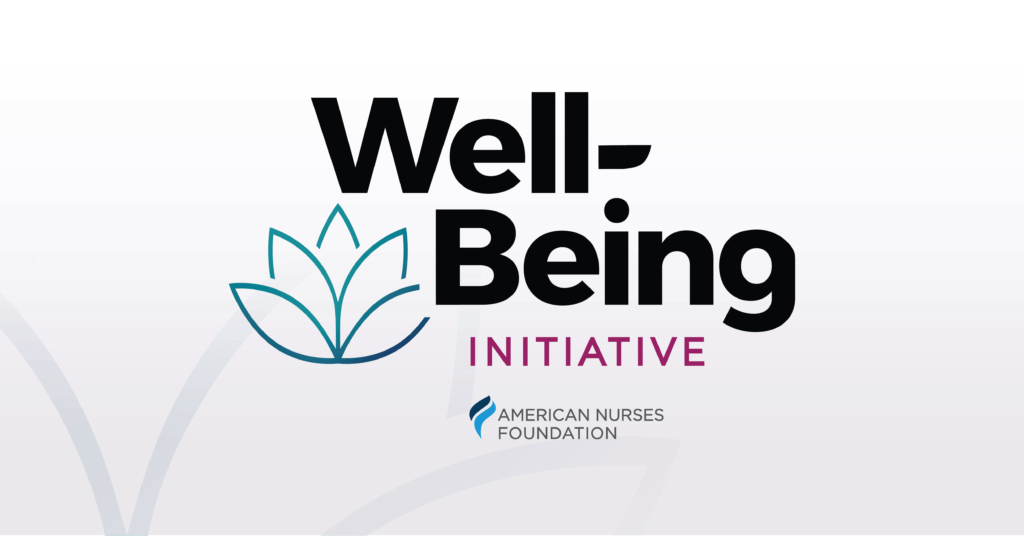The Importance of Self-Care for Nurses
By: Kate Judge, Executive Director, American Nurses Foundation
Plus Resources to Get You Started
Many nurses I know readily admit that putting others before themselves is second nature. The care and well-being of their patients, family and friends often takes priority over their own self-care. They also are less inclined to openly share feelings of stress and anxiety with family, friends or colleagues.
I admire nurses for their unwavering commitment to care and heal, but I find myself asking nurse friends, “how can you give your best to others if you don’t take care of yourself?” Even before the pandemic, nurses were more vulnerable to stress, anxiety, burnout and depression than other professionals.
COVID-19 is magnifying the intense pressure nurses face every day, both at work and at home. To help nurses relieve that pressure and take care of themselves, the American Nurses Foundation created the Well-Being Initiative.
The Initiative is designed to give nurses tools and resources to help them take the first steps toward feeling better and getting the support they need. Some of us process stress, anxiety and trauma by talking with peers or speaking one-on-one, while others prefer expressing emotions through writing or adopting a healthier daily routine. The Well-Being Initiative has something for everyone.
Nurses, improving your mental health and well-being means building a toolbox of resources that works for you. Here are steps I recommend you consider and the tools that can help you:
Connecting with Others – At some point we all talk to ourselves but talking with others is so much more effective! Simply sharing events from your day, how you feel, or processing a challenging situation with others can make all the difference in your mindset. There is huge value in peer support, especially when it comes from other nurses. Consider joining Nurses Together: Connecting Through Conversations—a program of voice and video calls that bring nurses together and provide a safe space to talk openly about self-care and wellness, recovery and resilience, care dilemmas, bereavement, and more. See the schedule and register for upcoming conversations here.
Mindful Self-care – There’s no question that exercise, relaxation techniques, healthy eating and quality sleep are the building blocks of balanced mental and physical health. Unfortunately, many of us get sidetracked and think “there’s always tomorrow.” Now there is an app that makes tomorrow happen now. Moodfit supports many aspects of your overall wellness, allowing you to set personal goals related to exercise, nutrition, sleep, mindfulness and more —and track your progress as well as set-up convenient activity reminders. Download it here.
Expressing Emotions – If you find yourself wanting to reach out and simply share your thoughts with an empathetic ear, try the Happy App, adapted especially for nurses as you manage the stress, anxiety, fear and isolation that comes with working on the frontlines. This is 24/7, one-on-one access to Support Giver team members from the comfort and privacy of your home. You talk and they listen—with open ears and zero judgment. Download the app here or visit the website to learn more.
Journaling is an invaluable exercise, as it allows us to get all our thoughts out and reflect on them later. Given these challenging times, writing about our experiences can be very cathartic. The Narrative Expressive Writing program is an ideal way to help you process your experiences related to COVID-19.
If you prefer talking with someone about your feelings and experiences, review this informative resource to learn more about seeking social and peer support and getting the mental health services you need.
Focusing on self-care and taking the first steps toward preventive measures can make a big difference—for you and for your patients. There is no time like the present to start prioritizing yourself and your well-being.
Does your organization have an employee assistance program? If so, take advantage of their services. Seek out or continue to visit (virtually, of course) a licensed mental health professional. Moreover, humans are social beings. Don’t forget about social support, especially in this period of social distancing. Set up regular daily or weekly check-in calls, texts, or video conferences with friends, family, and loved ones.
There are a lot of emotions going on right now, and everything you feel is valid. You’re not alone. Seeking mental health support can help you get through these extraordinary times.



Sorry, the comment form is closed at this time.